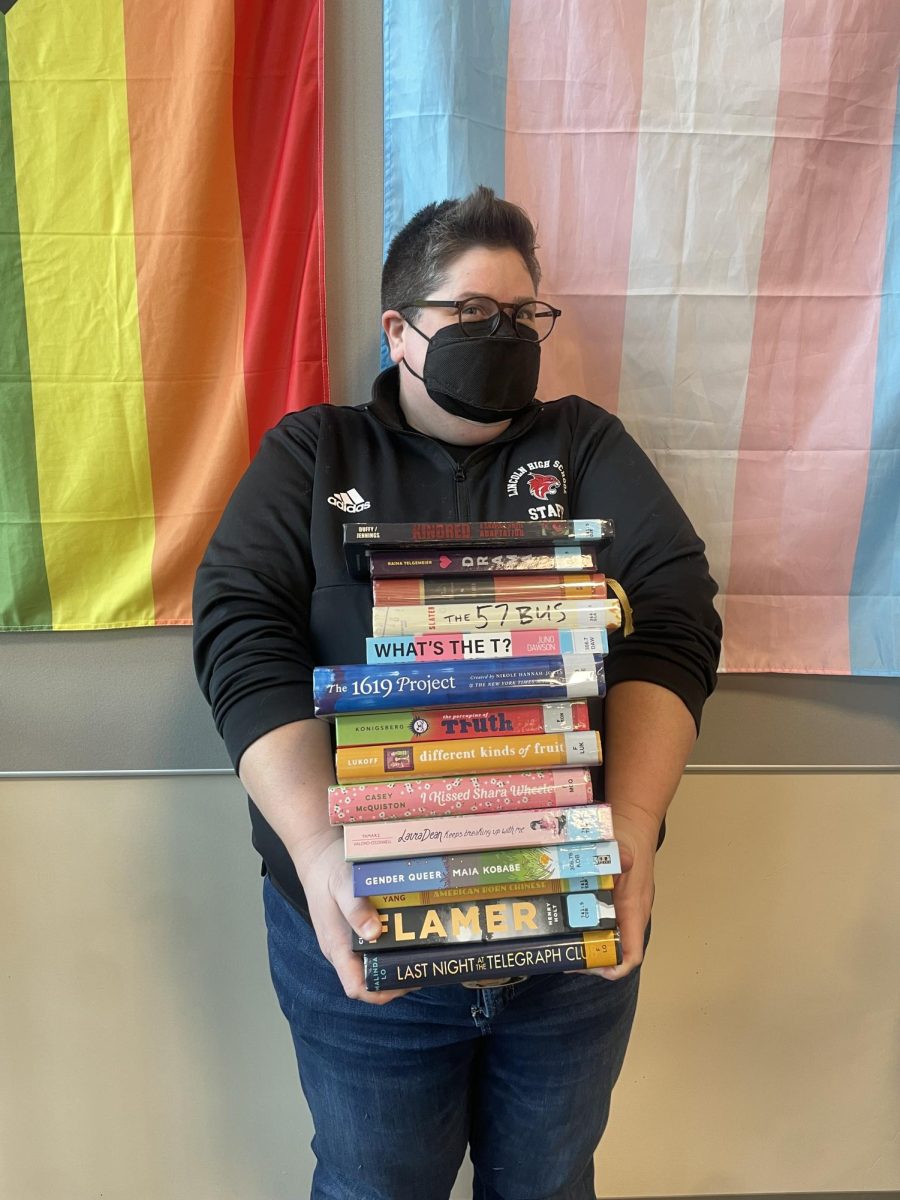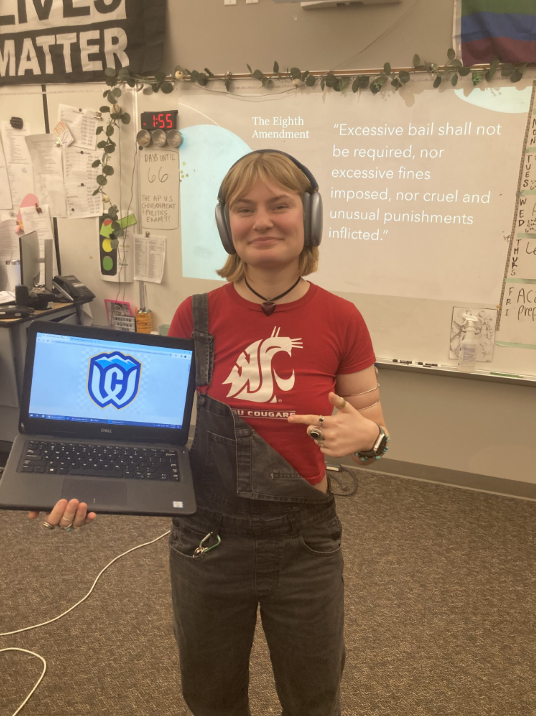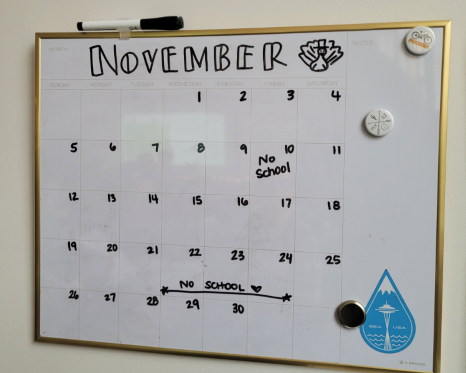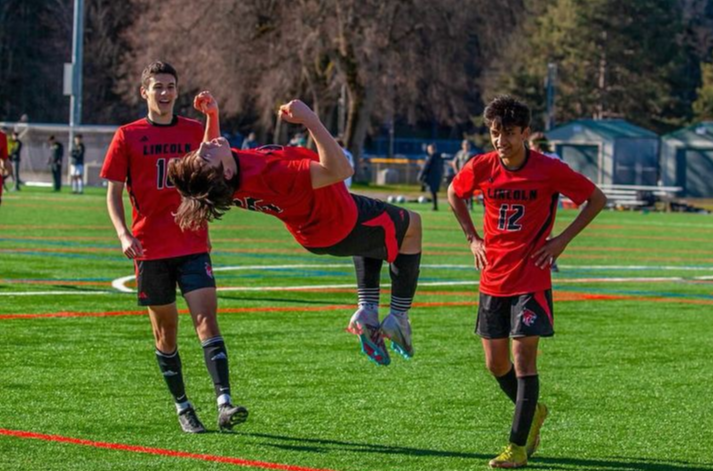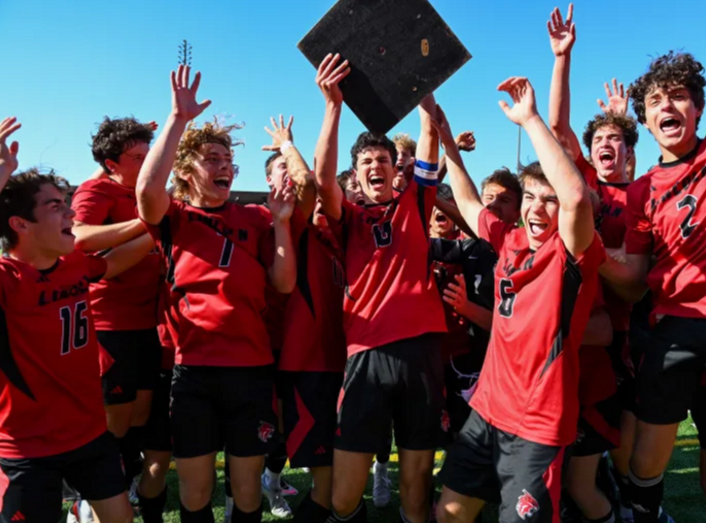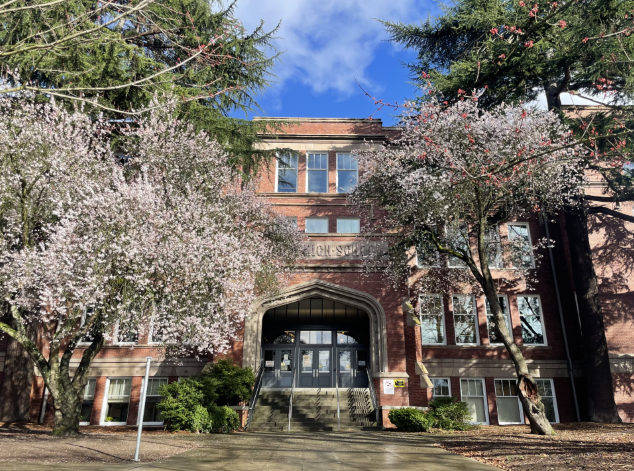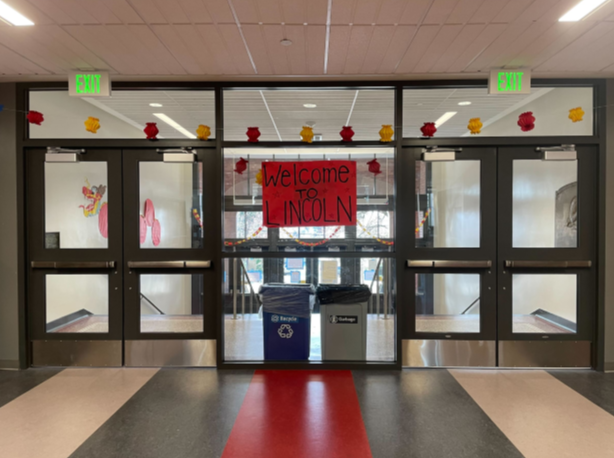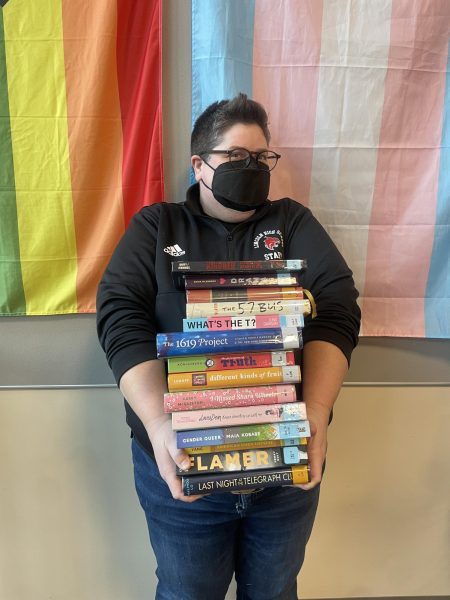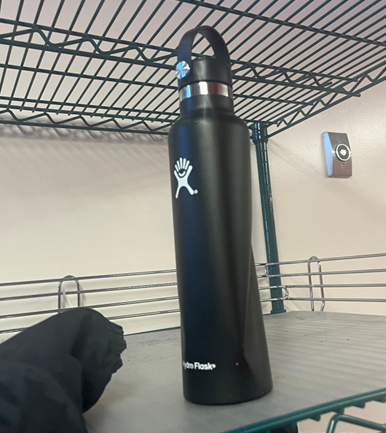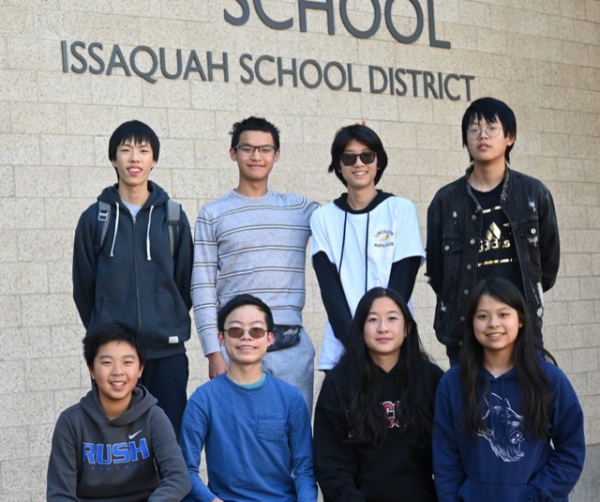School Start Time
December 7, 2022
When should school start? This has been a debated question for years among students, teachers, and school district employees. There isn’t one right answer of course, every student learns in different ways, and people learn better at different times in the day. But is there a happy medium?
A study done by IZA World of Labor shows that when Santa Clara University in California made school start time and hour later, test scores increased by 2.3%. You can clearly see a line of increase in the graph of the results, and it has been proven that hours of sleep directly correlate to test scores and academic achievements. It shows that when you get more sleep, test scores go up.
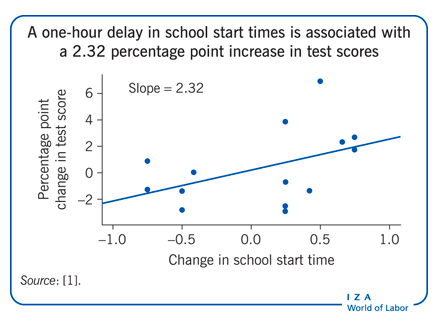
The article that did the study, written by Teny Maghakain Shapiro, says “A one-hour delay has the same effect as being in a class with a third fewer students or with a teacher whose performance is one standard deviation higher.” All these very pressing issues in our school system seem to tie together. The achievement of these goals, like smaller class sizes and quality teachers, has been a struggle for most school districts across the U.S. to achieve, with funds being cut and people demanding more.
In an article from Seattlemet.com; written by Benjamin Cassidy; Dr. Madia Chen, director of the Pediatric Sleep Disorders Center at Seattle Children’s Hospital, says “I really do think between 8:30 and 9 is kind of that sweet spot for just about all the age groups, for a variety of different reasons. But logistically, there would have to be a lot of things that would need to change for SPS in order for everybody to start at 8:30 or 9.” According to her, our school starts at a manageable and reasonable time for students and parents.
Dr. Madia Chen also talks about the effects of sleep on students. Not enough sleep has negative effects on things like mood and behavior of students towards their peers, teachers, and parents. She says, “I think most parents will tell you that their kids oftentimes are able to hold it together for the day, and then that fatigue—brain fatigue, physical fatigue, and then not having enough sleep—catches up with them in that family life, and family relations become really difficult if they’re savin’ it all for mom at the end of the day, type of thing.”
Sleep is essential to student productivity and motivation, as well as maintaining relationships with family and friends. A study done by Nature Communications called “Sleep Loss Causes Social Withdrawal and Loneliness” shows increased loneliness ties with decreased sleep efficiency (not enough sleep).
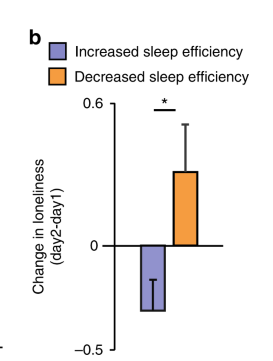
The article that did the study, written by Teny Maghakain Shapiro, says “A one-hour delay has the same effect as being in a class with a third fewer students or with a teacher whose performance is one standard deviation higher.” All these very pressing issues in our school system seem to tie together. The achievement of these goals, like smaller class sizes and quality teachers, has been a struggle for most school districts across the U.S. to achieve, with funds being cut and people demanding more.
In an article from Seattlemet.com; written by Benjamin Cassidy; Dr. Madia Chen, director of the Pediatric Sleep Disorders Center at Seattle Children’s Hospital, says “I really do think between 8:30 and 9 is kind of that sweet spot for just about all the age groups, for a variety of different reasons. But logistically, there would have to be a lot of things that would need to change for SPS in order for everybody to start at 8:30 or 9.” According to her, our school starts at a manageable and reasonable time for students and parents.
Dr. Madia Chen also talks about the effects of sleep on students. Not enough sleep has negative effects on things like mood and behavior of students towards their peers, teachers, and parents. She says, “I think most parents will tell you that their kids oftentimes are able to hold it together for the day, and then that fatigue—brain fatigue, physical fatigue, and then not having enough sleep—catches up with them in that family life, and family relations become really difficult if they’re savin’ it all for mom at the end of the day, type of thing.”
Sleep is essential to student productivity and motivation, as well as maintaining relationships with family and friends. A study done by Nature Communications called “Sleep Loss Causes Social Withdrawal and Loneliness” shows increased loneliness ties with decreased sleep efficiency (not enough sleep).
This study proves that students need enough sleep not just to focus, but to maintain mental well-being and be able to socialize in school. Sleep is one of the most important parts of our day, and all schools should work to maintain a start time that allows for students, especially high school students, to have enough sleep.
The main consensus from these articles is that school should start between 8:30-9:00am, to improve test scores, to maintain focus, to improve mental health, and for social abilities. But what about when school ends? Stay tuned for that in the next edition of the Lincoln Log!

